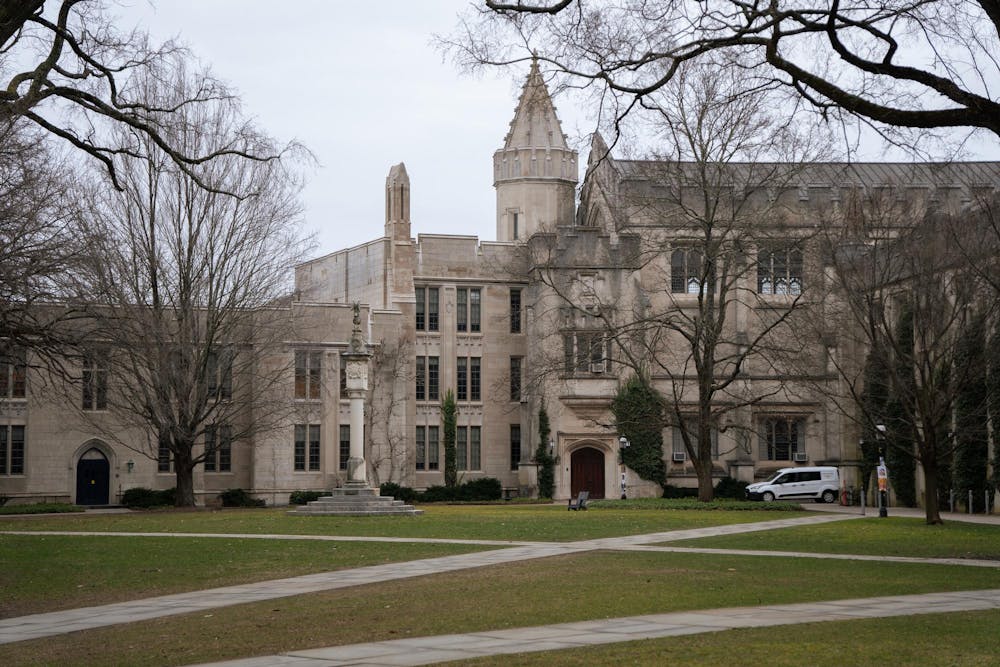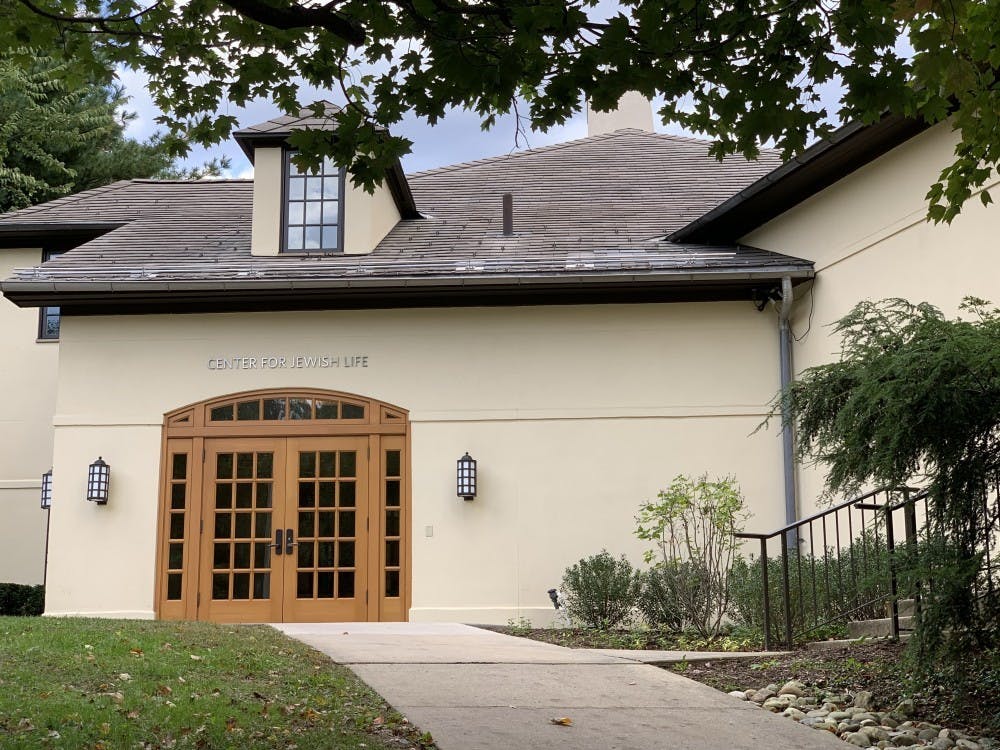What if I told you that Princeton is under investigation by the federal government for antisemitism, not because students, staff or faculty have filed a complaint, but because one man who is not affiliated with the University sent a complaint to the Department of Justice (DOJ)?
What if I told you that this complaint and its overblown rhetoric is what led to the suspension of millions of dollars of federal funding to Princeton University?
For starters, it’s weird that the investigation spurring Trump’s rationale for the funding cuts was initiated by Zachary Marschall — a far-right blogger who has no connection to Princeton’s campus or community. Marschall made the jump from a few online videos of chants to the illogical and incorrect conclusion that they made Jewish students unsafe. If campus community members are feeling unsafe, allow them to make the complaint themselves.
What’s really ironic, though, is that this same man, utterly external to the Princeton community, bashed encampments and pro-Palestine protests for supposed “outside agitators” joining in — an overused trope that has been used to stifle protest for decades.
He is the outside agitator that he fears. The people meddling in campus life and making students less safe are Marschall and his co-conspirators.
Who is Marschall, anyway? He’s the editor of Campus Reform, a publication that describes itself as a “conservative watchdog” of college campuses. In the past two years, he has taken it upon himself to submit at least a dozen antisemitism complaints to the DOJ against universities that he hasn’t attended or taught at.
Marschall’s logic about “outside agitators” — that they co-opt movements to the point that they can no longer be considered legitimate — is false and historically uninformed at best. The idea of a so-called “outside agitator” has been used to debase protest movements since the Civil Rights Movement of the mid-20th century.
Antagonists like Marschall appreciate the term because of its vagueness and adaptability. This is on show in the attempt to describe protesters as “outsiders” — the same words used by conservatives to characterize Martin Luther King Jr. because he was acting outside of his home state can be applied to protesters on college campuses in 2025.
But it’s not just the rhetoric of “outside.” Quoted in NPR last spring, Justin Hansford, a law professor at Howard University, explained that the word “agitator” is integral because it convinces people to accept a more aggressive response to protests: “People look to the righteous outrage of folks who see these terrible images … and there’s a certain level of sympathy. So it becomes a political risk to be seen as cracking down really harshly on folks who are sympathetic,” he said.
Classifying protesters as “outside agitators” is a part of a larger strategy to characterize them as dangerous radicals with little knowledge of the issue at hand, delegitimizing ultimately genuine concerns that many have.
You can see where I’m going here.
By nature of filing these complaints where he very well may talk about “outside agitators,” Marschall becomes, himself, the outside agitator. I’m not saying that we should respond to Marschall with increased aggression or violence. But Marschall “is” an activist with zero knowledge of our campus culture who weaponizes his outsized influence to inflict harm on universities.

Antisemitism — and all other forms of hate, including against Muslims and Palestinians — is indeed a real problem and should be fought vigorously, as I wrote in this section last month. But like University President Christopher Eisgruber ’83 said in his Wednesday appearance on The New York Times’ The Daily podcast, the University has taken tangible steps to fight hate, and it is Jewish students who have the highest levels of satisfaction about our campus experience.
It’s important to address that there are “outside agitators” on both sides of the political spectrum. Exhibit A is Monday’s protest against ex-Israeli PM Naftali Bennett: There were reports of protesters who are not University affiliates yelling “go back to Europe” towards people leaving Bennett’s event, indicating all Jews should leave Israel. But while the “outside agitators” participating in hate speech are well on the fringes of pro-Palestine activism, individuals like Marschall — also an agitator whose affiliations with the University are laughably nonexistent — have wielded a disproportionate voice against the University and encouraged punitive federal action. Marschall drives the mainstream on education in Trumpworld. The few instances of antisemitism on the part of pro-Palestinian agitators — while egregious — are not endemic to the movement.
Marschall’s not the only outside agitator talking about Princeton. A Wednesday afternoon editorial from The Wall Street Journal called on Princeton and President Eisgruber to take strong action against protesters who disrupted Bennett’s Monday event on campus. “[H]ow about some academic suspensions?” the board questioned.
Internal pathways for accountability do exist here and are currently being explored by the University for the most egregious offenders. Perhaps the Journal did not care to find this out, or perhaps they wrote the piece to drum up controversy. A piece like this from the Editorial Board of a national newspaper — one that perilously misconstrues the nature of Princeton’s community atmosphere by virtue of the acts of an unaffiliated few — is exactly what allows charlatans like Marschall to get their way, leading to the funding cuts that make campus life worse and more contentious for all.
Marschall and people like him, because of their authoritarian tendencies, will continue to prod at universities for as long as they continue to exist. It’s important to call out their contradictory rhetoric when we can, and it is incumbent upon Universities and their students to fight back against the mischaracterization of campus events.
That is how we make sure that universities do, in fact, continue to exist, especially during the administration of President Donald Trump, whose hatred of institutions of higher education cannot be overstated. We must retain the right to determine our own campus narrative — it shouldn’t be defined by a Wall Street Journal editorial or Zachary Marschall’s complaint.
Ultimately, it is not Marschall who bothers me most, although he certainly bothers me quite a bit. It’s the conditions that allow for Marschall to cause great harm and strain to the University — including the Trump administration and the right-wing media machine — even though he is not affiliated with it.
Until those conditions change, though, I’ll call him what he is: The real outside agitator.
Assistant Opinion Editor Charlie Yale is a first-year from Omaha, Neb., and can be reached at cyale[at]princeton.edu. Charlie was glad to close all of the “Campus Reform” and “Canary Mission” tabs open on his browser after submitting this column.








